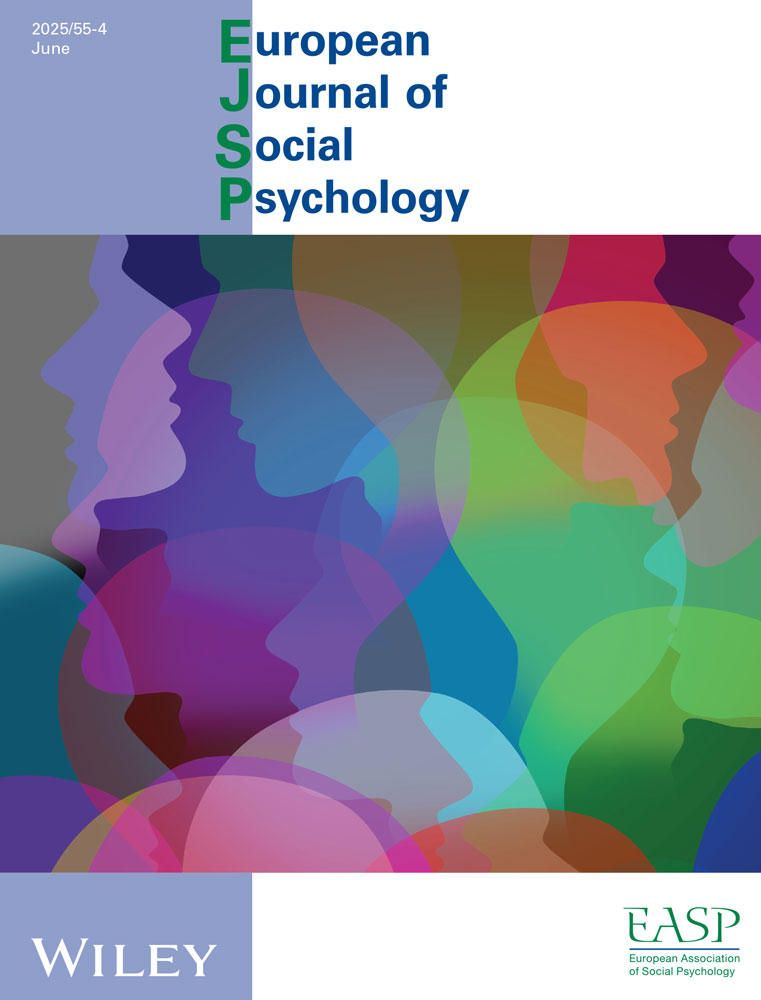A social identity approach to trust: interpersonal perception, group membership and trusting behaviour
Abstract
Trusting behaviour involves relinquishing control over outcomes valuable to the self. Previous research suggests that interpersonal perceptions of trustworthiness are closely related to this behaviour. The present research suggests that the more proximal determinant of trusting behaviour is the expectation that the other will reciprocate. Based on the Social Identity model of Deindividuation Effects (SIDE) model, reciprocity expectations may be created by interpersonal perceptions of trustworthiness or a shared group membership. To investigate this, group membership and individual identifiability were experimentally manipulated (N = 139): When individuals were not identifiable, trusting behaviour was based on expectations of reciprocity inferred from group membership, not on perceived trustworthiness. In contrast, personal identifiability fostered perceptions of trustworthiness for both in- and out-group members. In this case interpersonal trustworthiness enhanced expectations of reciprocity, which in turn increased trusting behaviour. Copyright © 2005 John Wiley & Sons, Ltd.




